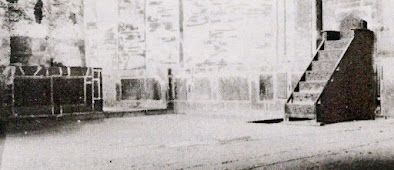One day, while seated with the Báb in his private garden within the courtyard of his house, the Mu’tamíd, taking his Guest into his confidence, addressed Him in these words: “The almighty Giver has endowed me with great riches. [1] I know not how best to use them. Now that I have, by the aid of God, been led to recognise this Revelation, it is my ardent desire to consecrate all my possessions to the furtherance of its interests and the spread of its fame. It is my intention to proceed, by Your leave, to Tihrán, and to do my best to win to this Cause Muḥammad Sháh, whose confidence in me is firm and unshaken. I am certain that he will eagerly embrace it, and will arise to promote it far and wide. I will also endeavour to induce the Sháh to dismiss the profligate Hájí Mírzá Aqásí, the folly of whose administration has well-nigh brought this land to the verge of ruin. Next, I will strive to obtain for You the hand of one of the sisters of the Sháh, and will myself undertake the preparation of Your nuptials. Finally, I hope to be enabled to incline the hearts of the rulers and kings of the earth to this most wondrous Cause and to extirpate every lingering trace of that corrupt ecclesiastical hierarchy that has stained the fair name of Islám.”
- Nabil (‘The Dawn-Breakers’, chapter 10)
[1] “On the fourth of March, 1847, Monsieur de Bonniere
wrote to the Secretary of Foreign Affairs of France: ‘Mu’tamídu’d-Dawlih,
governor of Iṣfáhán, has just died leaving a fortune appraised at forty million
francs.’” (A. L. M. Nicolas’ “Siyyid ‘Alí-Muhammad dit le Báb,” p. 242, note
192.) [Footnote provided by Shoghi Effendi]






